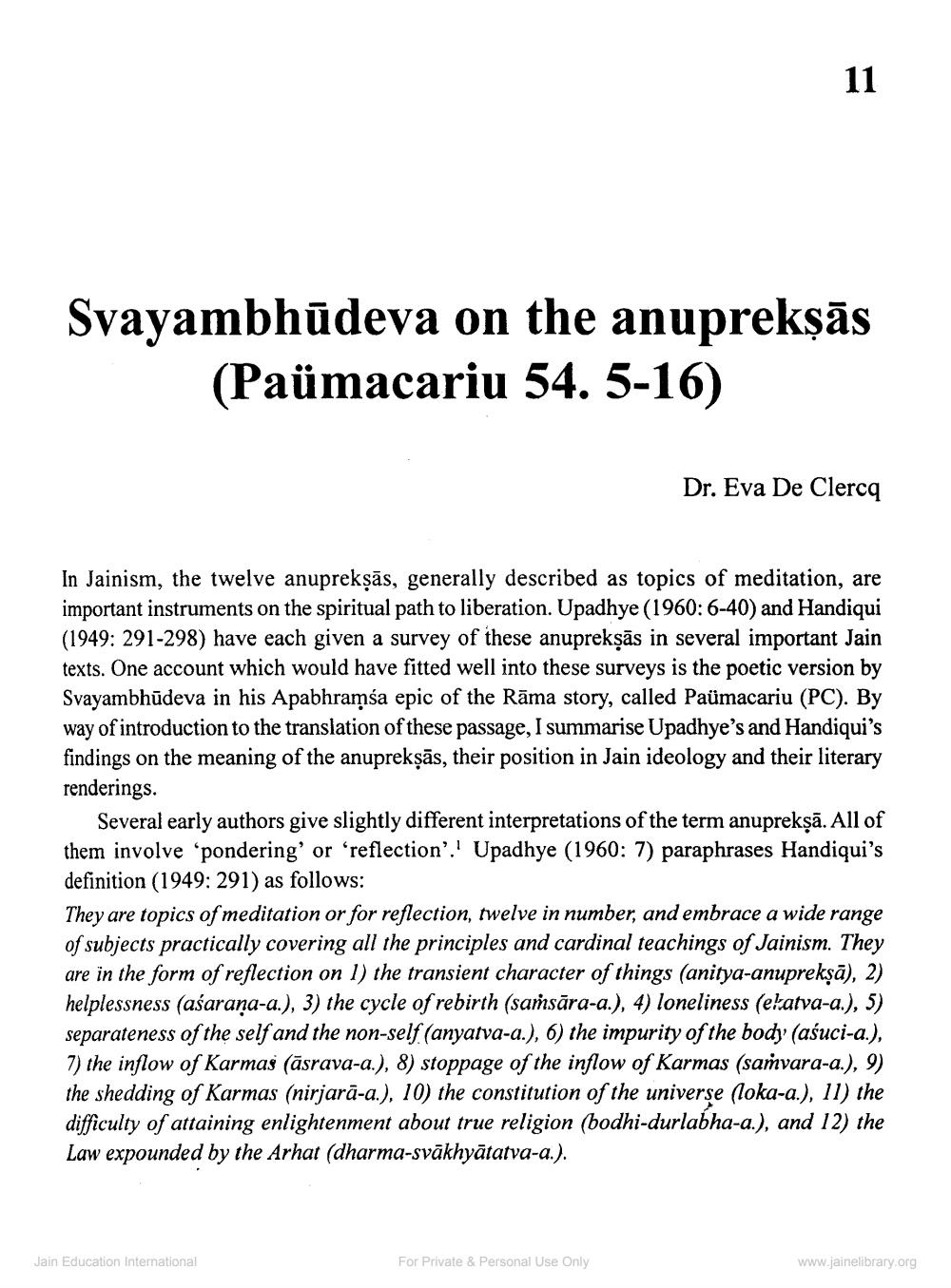________________
Svayambhūdeva on the anupreksās
(Paümacariu 54. 5-16)
Dr. Eva De Clercq
In Jainism, the twelve anuprekṣās, generally described as topics of meditation, are important instruments on the spiritual path to liberation. Upadhye (1960:6-40) and Handiqui (1949: 291-298) have each given a survey of these anuprekşās in several important Jain texts. One account which would have fitted well into these surveys is the poetic version by Svayambhūdeva in his Apabhramsa epic of the Rāma story, called Paümacariu (PC). By way of introduction to the translation of these passage, I summarise Upadhye's and Handiqui's findings on the meaning of the anuprekṣās, their position in Jain ideology and their literary renderings.
Several early authors give slightly different interpretations of the term anuprekņā. All of them involve 'pondering' or 'reflection'.' Upadhye (1960: 7) paraphrases Handiqui's definition (1949: 291) as follows: They are topics of meditation or for reflection, twelve in number, and embrace a wide range of subjects practically covering all the principles and cardinal teachings of Jainism. They are in the form of reflection on 1) the transient character of things (anitya-anupreksā), 2) helplessness (asarana-a.), 3) the cycle of rebirth (saṁsāra-a.), 4) loneliness (ekatva-a.), 5) separateness of the self and the non-self (anyatva-a.), 6) the impurity of the body (aśuci-a.), 7) the inflow of Karmas (āsrava-a.), 8) stoppage of the inflow of Karmas (sanvara-a.), 9) the shedding of Karmas (nirjarā-a.), 10) the constitution of the universe (loka-a.), 11) the difficulty of attaining enlightenment about true religion (bodhi-durlabha-a.), and 12) the Law expounded by the Arhat (dharma-svākhyātatva-a.).
Jain Education International
For Private & Personal Use Only
www.jainelibrary.org




